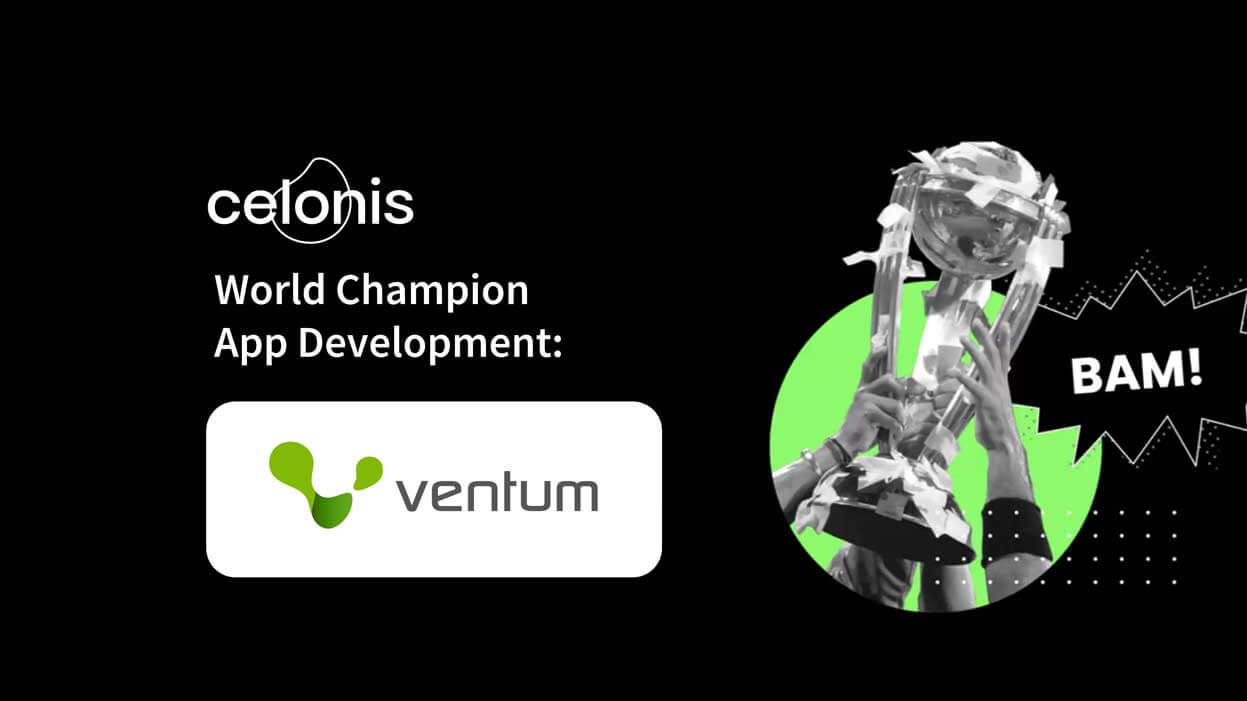- Veröffentlichung:
20.02.2024 - Lesezeit: 10 Minuten
CBAM reporting obligation since October 2023: What does this mean for you?
With the Carbon Border Adjustment Mechanism (CBAM), the EU has introduced a set of rules from October 2023 that will force importers of various key raw materials and intermediate products to take action. From the last quarter of 2023, this border adjustment mechanism provides for a reporting obligation for companies that import goods with a high carbon footprint from non-EU countries. The experts at Ventum Consulting can support you in implementing the new requirements in good time, minimizing risks and achieving your emissions targets. In this way, you not only cushion the internal impact of the new regulation, but also gain a sustainable competitive advantage.
Content
What is CBAM?
The Carbon Border Adjustment Mechanism (CBAM) is an instrument of EU climate policy. Its aim is to create a balance between companies inside and outside the European Union as part of the European Green Deal by preventing carbon leakage, i.e. the shifting of greenhouse gas emissions from the European Union to other countries. CBAM thus helps to reduce emissions from the production of imported goods.
The CBAM is also intended to protect European companies from their foreign competitors, who have benefited from lower energy prices to date. European companies have already adapted to stricter environmental standards and are investing in technologies to make their production more climate-friendly.
Which product groups are affected by CBAM?
The affected and thus high-emission product groups are – in pure as well as processed form:
- Cement
- Electricity
- Fertilizer
- Iron & steel, including pipes, sumps and structural parts such as bridge elements, piers, roofs, doors & windows.
- Aluminum
The total volume of product groups covered by the CBAM regulations amounted to around 12.7 billion euros in Germany in 2022. It can be assumed that the imported value for 2023 and beyond should at least remain stable in terms of economic growth. China (€ 2 billion), Turkey (€ 1.6 billion) and the Russian Federation (€ 1.25 billion) are exposed as affected import nations, even if the values for Russia in particular are likely to change in the coming reporting years due to the sanctions.






Which companies are affected by CBAM?
Due to the product groups affected, almost the entire manufacturing and processing industry is affected. In contrast to the EU CSR Directive, all companies are affected by the reporting and subsequent compensation obligation under CBAM, regardless of turnover and number of employees. Even companies that do not process iron, steel or aluminum may be affected if, for example, containers made of these materials that were previously imported from non-EU countries are used in production.
For importers of fertilizers, the most energy-intensive raw materials are affected; for importers of electricity, the focus is on a few companies that import energy from non-EU countries via pipelines or road and rail transport.
What does the CBAM mandatory reporting include?
Companies that import CBAM goods from other EU countries from 01.10.2023 must send their first CBAM report to the EU Commission on 31.01.2024, which covers the entire 4th quarter of 2023. If an extension is requested via the official portal, the deadline is extended to July 31, 2024.
The data to be provided is complex and extensive: direct and indirect emissions as well as emissions from upstream products must be specified for each imported article concerned. These values depend on the production location. In order to fully cover the reporting requirements, companies must collect, verify and then report the exact amount of energy and material flows used for the production of the goods and their upstream products from their suppliers.
Approximate and default values are a great relief up to and including the Q2 2024 report, but do not exempt from the need to request further data from the suppliers concerned. From the third quarterly report 2024 onwards, only 20% of the total emissions of a product can be covered by the default values.
Consequently, the specific challenge is to offer suppliers the most intuitive way of transmitting reliable data. You can easily solve this with the help of our SaaS solution CORA. Your suppliers receive a survey in which they either use the default values or are guided step by step to an EU-compliant calculation of emissions. In addition to enormous time savings or high supplier acceptance, the result is an XML file that can be uploaded to the EU portal.
What is the timeline for the implementation of CBAM and what needs to be done now?
- Total quantity of the imported type of goods in tons
- Total gray emissions in metric tons of CO2e emissions per metric ton of each type of goods
- Total number of CBAM allowances corresponding to total gray emissions that must be surrendered, after mitigation based on the CO2 price paid in a country of origin.
Certificate trading and possible costs
The transitional period of the regulation applies until 2026, during which adjustments can be made to the regulations in general, but also to product groups. From 2026, companies will be obliged to purchase CBAM certificates to compensate for non-offset greenhouse gas emissions.
The price of the certificates is based on the weekly average of the EU ETS certificates already available for purchase. Each company must hold 80% of the required allowances at the end of each quarter. This is intended to encourage companies to gradually accumulate the required certificates over the course of a year. The CBAM certificates are valid for two years; surplus certificates can be returned up to certain deadlines and will be refunded.
Companies should consider strategic planning to purchase the required certificates gradually over the year in order to optimize costs. It is important to keep an eye on the development of certificate prices and adjust compliance strategies accordingly in order to minimize financial burdens.
How does Ventum Consulting make you "Fit for CBAM"?
The experience gained from numerous CBAM projects for importers & producers enables you to benefit from established consulting projects. Our approach is always to keep the effort in your organization for compliant implementation as low as possible. We can support you in various ways to ensure that you reach your destination smoothly:
CBAM workshop
A joint appointment lasting around four hours with the aim of validating your CBAM project approach with experience from the market tailored to your specific situation. This clearly sets us apart from the competition:
- We validate or create your impact analysis in advance of the appointment. The result of this analysis is the correct number of supplier surveys that need to be carried out. The implications arising from the operation of a bonded warehouse are also taken into account.
- In advance: Creation or validation of your CBAM project by the end of 2025 – which internal organization has proven itself in practice and by when must which activities be completed?
- In the appointment: Conveying the content relevant to you, including a walkthrough of a complete supplier calculation. Only if you understand what tasks lie ahead for your non-European partners can you make the right decisions regarding possible implementation.
- In the appointment: Best practices & concrete implementation proposals based on your situation
- After the appointment: receipt of all documents
You can also access a compact, general treatment of some of the topics from the workshop here in our recorded webinar at any time.
MVP
As a “Minimal Viable Product”, i.e. the smallest possible product in the CBAM sector, Ventum has developed a procedure following numerous successful customer projects, which covers the entire process chain from identification to successful …
…compliant reporting for one of your suppliers and a limited number of customs tariff numbers with your employees. In addition to the successful completion of a project for a supplier, the focus here is particularly on imparting knowledge to internal managers. The jointly developed procedure can generally be transferred to all other suppliers without our support.
CORA
The Carbon Optimizer & Reporting Assistant (CORA), developed by Ventum in collaboration with IBM, is a web-based solution for the almost complete …
CBAM Control App for Celonis
The winner of the global Celonis Hackathon 2023 in the App Development category: Our CBAM Control App.
The dashboard allows you to keep track of CBAM-relevant orders, status & validity at all times …
…of supplier surveys as well as a chronological development of all relevant KPIs.
The solution identifies affected orders directly from your ERP system and triggers the necessary supplier queries either in CORA or in your own supplier survey system. Thanks to intelligent automation, reminders and notifications of possible errors in the survey can be resent to suppliers according to your configuration without further interaction. Once the supplier survey process has been completed, an EU report is created in XML format.
This functionality guarantees you compliant CBAM reporting both retrospectively and prospectively. In combination with other Celonis functionalities, we offer the implementation of the Emission Reduction Roadmap. This is a concrete CBAM-specific approach to improve the reported emissions from default values, through simplified calculated values to fully optimized & compliant emission values by 2025.
Our claim: WithFit for CBAM by Ventum, you not only cushion the internal impact of the new regulation, your company also gains a sustainable competitive advantage.
Get in touch with us today so that we can get you fit for CBAMin good time.




